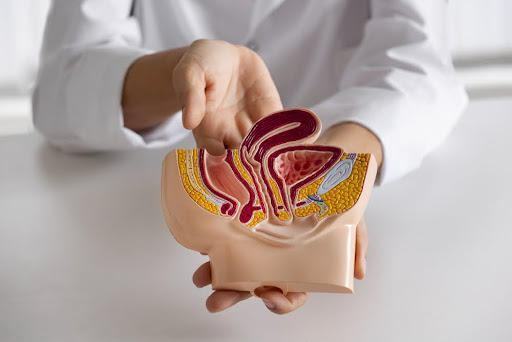
Hernia Surgery in Mumbai (Hernia Repair or Correction Surgery)
- Home
- Hernia Surgery in Mumbai (Hernia Repair or Correction Surgery)
Hernia Surgery in Mumbai (Hernia Repair or Correction Surgery)
Hernia surgery is a surgical procedure done to return an organ to its original place after protruding through a weak spot of muscle. Hernias can affect both children and adults. Some hernias tend to be painful while others are not. The objective for hernia surgery is to provide the best and strongest repair with minimal chance of recurrence and least possible discomfort with fastest recovery.
There are three different types of hernias:
- Uncomplicated hernia – this is where the intestines protrude into the peritoneum but are not trapped.
- Incarcerated hernia – this happens when the intestines protrude through the weak area and become trapped.
- Strangulated hernia – this is when the incarcerated hernia does not receive blood after its supply is cut off. It can lead to gangrene.
Both strangulated and incarcerated hernias are considered as medical emergencies. Thus, they require emergency surgery. Because of this reason, doctors recommend surgery for uncomplicated hernia even when it doesn’t pose any threat to the patient.
Indications for this surgery
A doctor can recommend surgery after noticing the following indications:
- Most hernias need surgical treatment. All uncomplicated hernias must be recommended to undergo hernia repair to prevent further complications.
- Incarceration – this is where a tissue gets trapped in the abdominal wall. If incarceration is left untreated, it can result to strangulation, where the blood supply to the tissue is cut off.
- Strangulation of the hernia – this can lead to permanent damage, and in most serious cases cause death. You should seek immediate medical attention if you experience acute pain which gets worse, fever or the hernia turns dark, red or purple. If that’s the case, you might require undergoing emergency surgery.
- If the hernia is growing larger or causing pain and discomfort.
How is the surgery performed?
Hernias can be repaired by either the open method or laparoscopically. Both methods are performed at a surgery center or hospital. After undergoing a hernia surgery, a patient is usually able to go home after a few days. In most cases, patients usually go home the same day of the surgery.
Open hernia repair
The following are the surgical procedures for open surgery:
Before the surgery, the patient receives a local or spinal anesthesia, which numbs the lower part of the body. Also, a general anesthesia can be administered to the patient. This is mostly administered through an IV, and the patient is usually asleep during the entire surgery.
The surgeon makes an incision to open the skin of the patient. Then, the surgeon either ties the hernia off or gently pushes it back to place or completely removes it. After that, the surgeon uses stitches to close the weak area of the muscle, where the hernia had pushed through. Generally, a mesh is placed to provide additional support. The mesh prevents the hernia from recurring.
Laparoscopic hernia repair
In laparoscopic hernia repair, the surgeon inflates the abdomen with carbon dioxide. This assists the surgeon to have a better view of the organs. The surgeon then makes a few incisions, which are usually small and close to the hernia. The laparoscope guides the doctors as they repair the hernia. In most cases, doctors use a mesh while repairing the hernia. During laparoscopic hernia surgery, general anesthesia is administered to the patient.
Recovery after laparoscopic hernia surgery is usually faster. Research has revealed that most patients resume their normal activities a week earlier than open surgery.
However, the type of surgery you require mostly depends on the size and type of the hernia and its location. In addition, the doctors usually consider the patient’s age, health, and lifestyle before recommending the type of surgery.
Advantages of doing laparoscopic hernia repair
Laparoscopic hernia surgery is the best way to treat hernias. The benefits of laparoscopic hernia surgery over open surgery include:
- The patient experiences less pain after the surgery.
- The surgery allows a patient to stay in the hospital for a very short time. A patient can even go home the day of the surgery.
- The patient usually recovers faster.
- Less blood loss during the surgery.
- Smaller scars.
However, laparoscopic hernia surgery is technically difficult and it requires the surgeon to be skilled in advanced laparoscopic techniques.
Side effects or complications of the procedure
Hernia surgeries are usually safe. But like all other surgeries, hernia surgeries have a number of potential complications. These include:
- Blood clots – blood clots can develop if a patient is under anesthesia or if they don’t walk much for a period of time after the surgery.
- Pain – in some cases, the operated areas tend to become sore as the patient heals. Some patients also develop chronic and prolonged pain after groin hernia surgery. This mostly affects patients who undergo open surgery, which may damage some nerves. Laparoscopic hernia surgery, on the other hand, causes less pain compared to open surgery.
- Nerve injury – the stitches and staples used to close the wound can exert pressure on a nerve. Also, a nerve can be trapped during the surgery. But, you should always be cautious after undergoing a hernia repair. If you experience a tingling or sharp pain after the surgery, notify your doctor as you might need another surgery.
- Relapse – hernias have a tendency of re-occurring, especially if the patient doesn’t take good care after the surgery. However, the risk of recurrence can be reduced by half by using mesh.
- Wound infections – wound infections can occur if the patient fails to take care of the wound, especially after open surgery.
- Seroma formation- May occur in some patients and is most often treated conservatively.
Post-operative care
Here are some of the things which patients should be aware after undergoing a hernia removal surgery:
-
- Discomfort – after undergoing a hernia surgery you will definitely experience some discomfort, especially where the stitches are placed. The anesthetic used during the surgery also wears off after a few hours. Pain medication can be used in case the patient experiences excess pain.
- Swelling – a patient can experience some swelling in the operated area. This at times can be as a result of collection of fluid where the hernia was located. This is not common, but if it occurs, the fluid is absorbed back into the body in a matter of few weeks. A patient can also experience bruising around the wound. However, the bruising usually disappears in few weeks.
- Caring for the wound – the wound dressing should be left in place until it falls off by itself. If it fails to fall off within a week, it can be removed safely then. The dissolving stitch beneath the skin doesn’t need to be removed.
- Wound infection – wound infections are not common. However, if the wound turns red and becomes swollen and painful, the patient should contact their doctor immediately. If wound is infected, a patient is advised to take prescribed antibiotics.
- Physical activity – after undergoing a hernia repair, a patient should not engage in strenuous physical activities for a period of 3 months. It is advisable for the patient to move around the house and even take short walks.
Cost of hernia surgery
Hernias can be repaired through either open surgery or laparoscopic surgery. The cost of hernia surgery depends on the type of the hospital, room type selected and duration of stay in the hospital. Cost will also depend on the type of mesh used. Usually the cost of dual or composite meshes are higher. Cost of hernia surgery is generally covered by insurance in India.
About Dr. Aparna Govil Bhasker
Dr. Aparna Govil Bhasker is an accomplished Bariatric Surgeon and Laparoscopic GI Surgeon. Extremely passionate about her field of specialization. She completed her MBBS and MS in General Surgery in 2006, from Mahatma Gandhi Institute of Medical Sciences (MGIMS), Sewagram. Set up in 1967 by none other than the first health minister of India, Ms. Sushila Nayar, MGIMS is deeply rooted in Gandhian ethics. Read more


Surgeon in India


Bariatric Surgery: Pros and Cons

Types of Hernias and Their Treatment Options Explained
- Intra-Gastric Balloon Insertion Surgery
- Laparoscopic Adjustable Gastric Banding Surgery
- Gastric Sleeve Surgery / Laparoscopic Sleeve Gastrectomy
- Single Incision Sleeve Gastrectomy Surgery
- Laparoscopic Roux-en Y Gastric Bypass Surgery
- Laparoscopic Banded Roux-en Y Gastric Bypass Surgery
- Laparoscopic Mini Gastric Bypass Surgery /Omega Loop Bypass
- Laparoscopic Sleeve Gastrectomy with Duodeno-Jejunostomy Surgery
- Laparoscopic Duodenal Switch Surgery
- Laparoscopic Sleeve Gastrectomy with Duodenal Ileostomy (SADI) Surgery
- Laparoscopic Revisional/Redo Bariatric Surgery
- Metabolic Surgery for Diabetes
- Terms & Conditions
- Privacy Policy
- Sitemap
